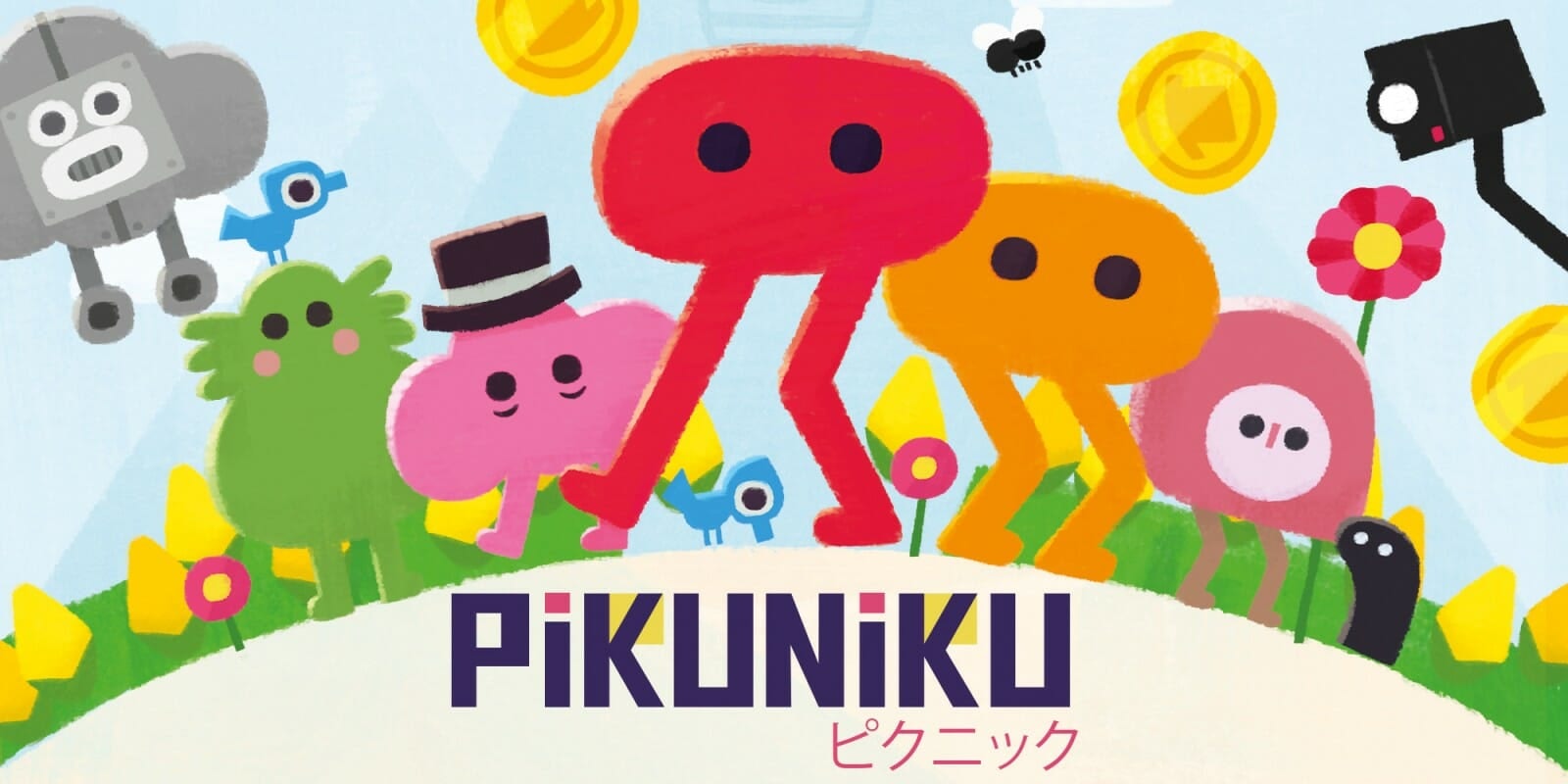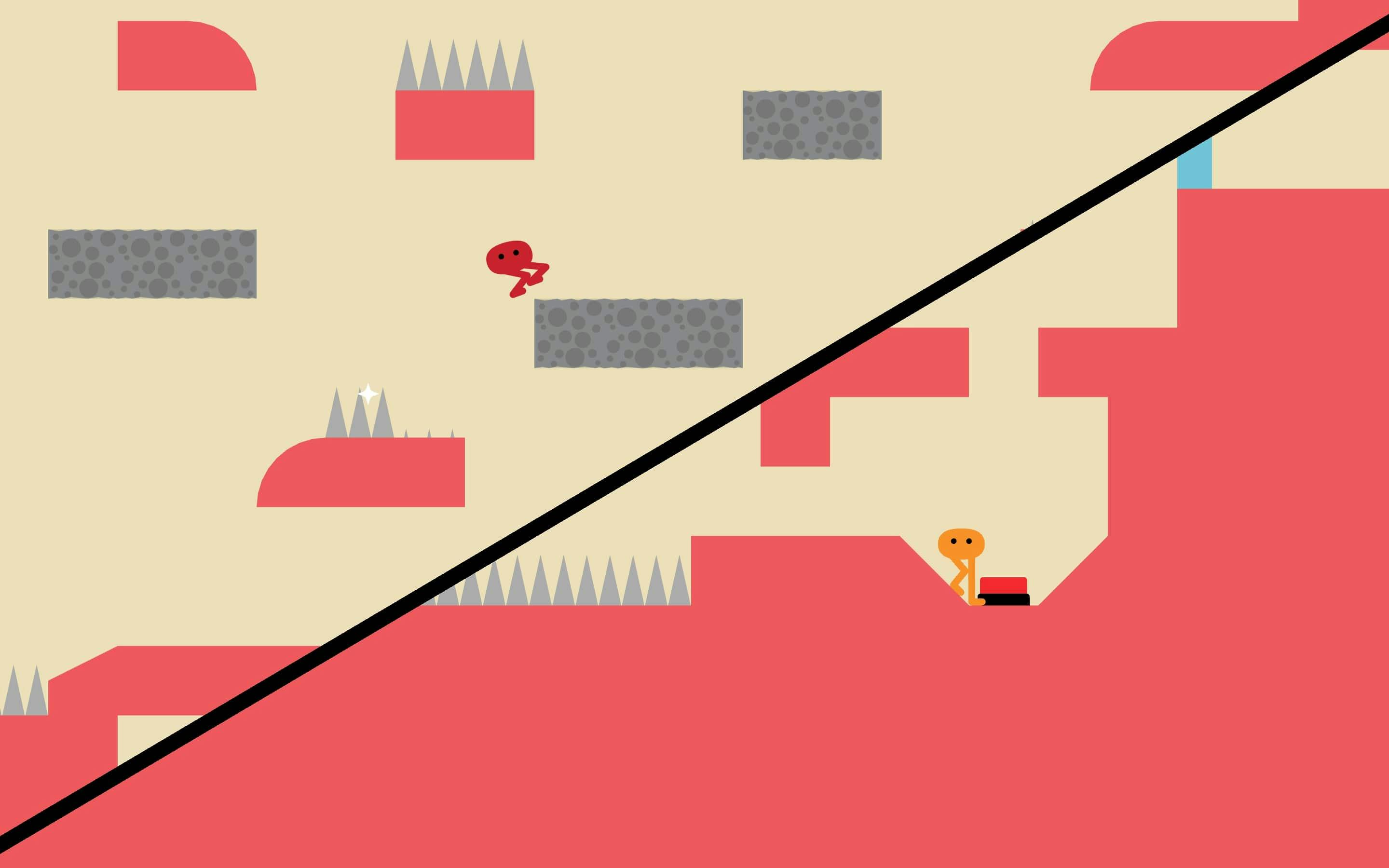It didn’t take long for me to realize how much I loved Pikuniku.
Something about the simple pastel colors, the goofy character and his outrageous walking animations, and the entire Microsoft Paint–inspired art style just immediately clicked. This is the kind of game that certainly isn’t for everyone, but offers a charming, brilliantly clever adventure that I can’t stop thinking about.
Piku—our round, red hero—wakes up in an underground cavern at the game’s opening, watched over by a lonely ghost. In promptly ascending back to the surface, I mastered all the mechanics I would need to beat the game. But, Pikuniku is far more about the journey than any destination. Along the way, I befriended hilarious creatures, wreaked accidental havoc in a quiet town, and dismantled a capitalist pyramid scheme.
Sectordub has crafted a free-flowing experience in a world that isn’t large, but is stuffed with quirky personality. Meta-jokes and self-referential humor come fast and loose, but the game doesn’t waste any of your time dwelling on how sharp it is. The brisk pace of this breezy story makes it so much easier to appreciate Pikuniku’s strengths.
Even the opening hour is jam-packed with moments that deftly set the stage for an off-kilter experience.
As you prance through rolling hills, you come across a bridge. You could try jumping the entire length of the slim rope, but you’d fall just short. As you cross it, the bridge collapses into the river below. Nearby townsfolk are furious and won’t accommodate you until the bridge is fixed. After backtracking to the downed bridge, you investigate the scene. There isn’t much to do except poke at a tree on a hill nearby. Sure enough, a friendly spider descends to greet you. But they won’t spin you a new bridge, because they know it’s your fault in the first place.
At this point the game hasn’t introduced many systems for collecting objects or bartering with NPCs. In fact, your character can’t really do much but jump or kick. So how should you proceed?
With the press of a button, the red blob punts this spider all the way across the water and forms a sturdy new pathway. Pikuniku might not be the most complex game you’ve ever seen, but its simplicity is inspired.
Completing Majora’s Mask-esque tasks for various villagers makes up the bulk of this game’s content. To inhabit the colorful town is a constant source of joy, as you discover secret pathways or solve puzzles that seemed like ambiguous eccentricities at first.
Character-driven sidequests flesh out the main story, offering a few distractions to chase rather than racing through objectives. Piku can also collect several different costumes, some of which have serious story implications (and some that just look cool).
Watching the story develop provides a continuous display of baffling scenarios. Likewise, the individual puzzles are genuinely unpredictable—but novel in their solutions. Pikuniku contains platforming sections, competitive sports, rhythm-based minigames, boss battles, and secret areas that are sure to delight anyone who picks it up.
Aside from the main campaign, there’s also a small co-op mode that capitalizes on the game’s goofy physics system. The dozen-odd levels feature escalating puzzles for two players to tackle. This mode provides the perfect way in for anyone who might be curious to see this wacky platformer in action.
Overall, Pikuniku has so much personality bubbling out of every moment that I couldn’t put it down. The five-hour story goes to some wild places, and the writing is consistently hilarious. This game belongs in the same breath as Undertale and Night in the Woods for the way it plays with its own video game-ness. Pikuniku bashes tropes, breaks the rules, and defies any possible expectations you could have.
4/5
Pikuniku is available now on Nintendo Switch and PC. This review was written based on a Nintendo Switch copy of the game provided by the publisher.


